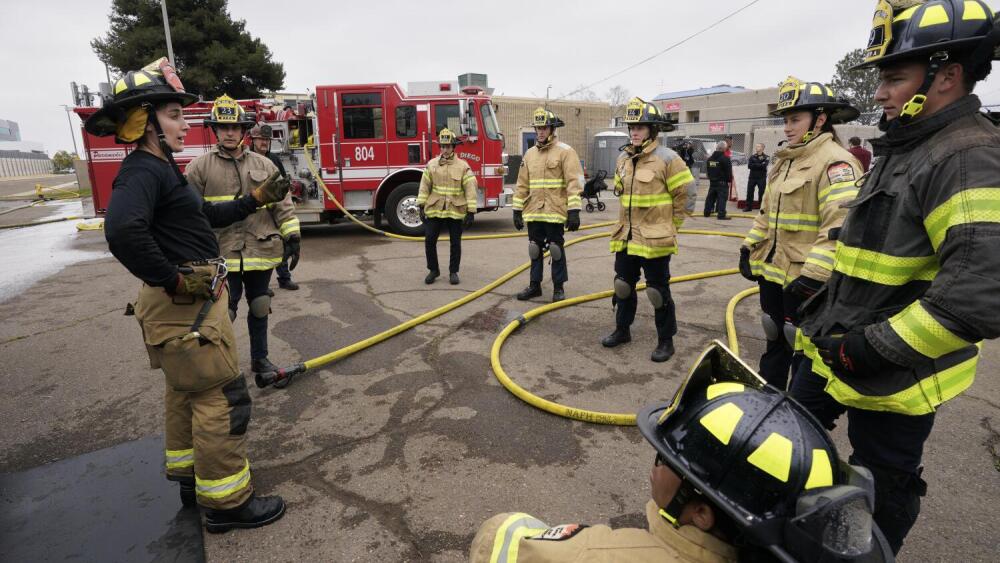By Barry Reynolds
Many, if not most, fire departments use a recruitment and hiring policy to guide the selection process of new personnel. This policy can be found within the agency policy manual, or is part of a larger human resources policy for the state, county or city that oversees hiring for the organization.
The actual policy itself is often procedural in nature, outlining the requirements for consideration of employment, and the necessary and exact steps taken through the hiring process to ensure the most qualified applicants receive consideration. Often, there is a statement of non-discrimination advocating diversity within the hiring process.
These are all great policies to have and follow, but in an era of greater transparency, many organizations are including a statement of principles within their recruitment policy. This statement of principles outlines the philosophy and values within which the recruitment and selection process operates, as well as the hiring process expectations for both the agency and the potential candidates.
Some items in the statement of principles might seem obvious, while others may also be included in the fire department’s values statement. However, the inclusion of expressed and transparent principles in the recruitment and selection process can be vitally important to the process itself, sending an important message to potential candidates considering your organization among their employment options.
Here are five principles to consider adding to your recruitment and selection process policy:
1. Respect for diversity
Even with the presence of similar statements or clauses within the hiring procedures themselves, a clarified statement on the value of diversity in organizational personnel takes it beyond a mere policy statement to a philosophical statement of inclusion. This principle should clearly state that the organization not only respects diversity, it actively pursues a diverse workforce through the recruitment and selection process.
2. Commitment to service
This principle outlines the organization’s philosophy regarding community service. Regardless of the philosophy the organization employs, service to the community remains the foremost goal. To perpetuate that philosophy, an agency’s recruitment principles must emphasize service to the community, and actively seek firefighter candidates who place community service as a priority in their personal approach.
3. Integrity
This principle requires the agency instill integrity and honesty as the twin pillars of credibility in the recruitment and selection process. This applies to both the agency and the candidate. If an honest mistake is made in the process, the agency may resolve the issue on the side of the candidate.
However, an agency should be clear that dishonesty or a lapse in moral integrity results in the immediate and permanent disqualification of the candidate. The social contract we hold with our communities demands we expect nothing less from current and future employees.
4. Merit-based selection
The recruitment and hiring process of firefighters can be extensive and lengthy, or it can be streamlined with an eye toward onboarding at the earliest opportunity. Regardless of the process, the principle of merit-based selection in the fire service requires the most qualified applicant receive the highest consideration. A merit-based selection process utilizes multiple evaluations of a candidate’s qualifications with each evaluation being objective and independent from the others.
There will always be some form of subjective evaluation, but the goal of the merit-based system is to reduce subjectivity to the highest extent possible to assure candidates that their qualifications and performance are the primary considerations for advancement.
5. Recruit for vacancies and hire for the future
The philosophy behind this principle recognizes that the recruitment and selection process is the first and most important step an organization takes in acquiring and retaining career employees. While the immediate goal of the hiring process might be to fill current or imminent vacancies, the department is looking toward the sustainment of a stable and professional workforce. As such, consider those intangible traits and values that lend themselves to a long-standing employment relationship.
Hire career firefighters
Too many agencies find themselves repeating their recruitment process because the first process failed to result in enough qualified candidates, or the candidates chosen failed to successfully transition to permanent employment status.
Implementing a set of organizational principles into your recruitment and selection process helps market your agency to the type of candidates who are most likely to be successful in your hiring process, thereby increasing the chances that your next hire will be a member of your organization for decades to come
ABOUT THE AUTHOR
Barry Reynolds is a leadership author and instructor, and owner of Police Leadership Resources LLC, which provides leadership training and consulting to law enforcement agencies. Barry previously served as a senior training officer and the coordinator for career development programs for the Wisconsin Department of Justice, Training and Standards Bureau. Barry holds a master of science degree in management and is a certified leadership instructor.
This article, originally published in November 2017, has been updated.













